África francófona: la sociedad civil teje una red por la transparencia
Afrique francophone : la société civile s’organise pour faire avancer la transparence
A través de seminarios web, solidaridad regional e iniciativas locales, los actores de la sociedad civil están tejiendo gradualmente una red continental en torno al gobierno abierto.
A través de chats de WhatsApp y pantallas de Zoom, desde Dakar hasta Rabat, un movimiento silencioso se abre paso por el África francófona. No es ruidoso, pero sí decidido: una red creciente de actores de la sociedad civil que trabaja para transformar la gobernanza de forma abierta, inclusiva y alineada con las realidades locales.
La iniciativa, conocida como Open Dev AfricaNo es una institución formal. No tiene sede, oficina de prensa ni jerarquía. Pero Es una red de más de 700 miembros en 21 países unidos en la creencia de que el mundo francófono debería tener una voz más fuerte en el Open Government PartnershipLa Open Government Partnership (OGP) es una iniciativa de múltiples partes interesadas enfocada en mejorar la transparencia del gobierno, garantizar oportunidades para la participación ciudadana en asuntos públicos y fortalecer... Más (OGP), donde los países de habla inglesa han dominado la conversación durante mucho tiempo.
“En las primeras reuniones de OGP, la brecha era evidente”, recuerda Abdoulaye Ndiaye, del Senegal Artículo 19. “Los países anglófonos llegaron con planes de acción completos. Nosotros llegamos con energíaGarantizar el acceso universal a una energía sostenible, confiable y asequible es fundamental para todos los aspectos de la prosperidad. Incrementar la supervisión pública y la transparencia en el sector energético puede ayudar a lograr... Más, pero también demora. Aun así, llegamos.
Lo que comenzó como un intercambio informal de correos electrónicos y chats grupales se ha convertido en una red de colaboración que abarca todo el continente. Organizaciones, juventudesAl reconocer que invertir en la juventud significa invertir en un futuro mejor, los gobiernos participantes de OGP están creando oportunidades significativas para que los jóvenes participen en los procesos gubernamentales. técnico... Más Movimientos, colectivos de mujeres y asociaciones locales se autoorganizan mediante seminarios web, compartiendo herramientas y estrategias, y elaborando agendas comunes. La coordinación se realiza horizontalmente. Los títulos no importan. Las contribuciones sí.
“Aquí no hay un centro de gravedad”, dice la activista y cofundadora tunecina Mouna El Mekki. “Cada uno aporta lo que puede. Esa es la fuerza”.
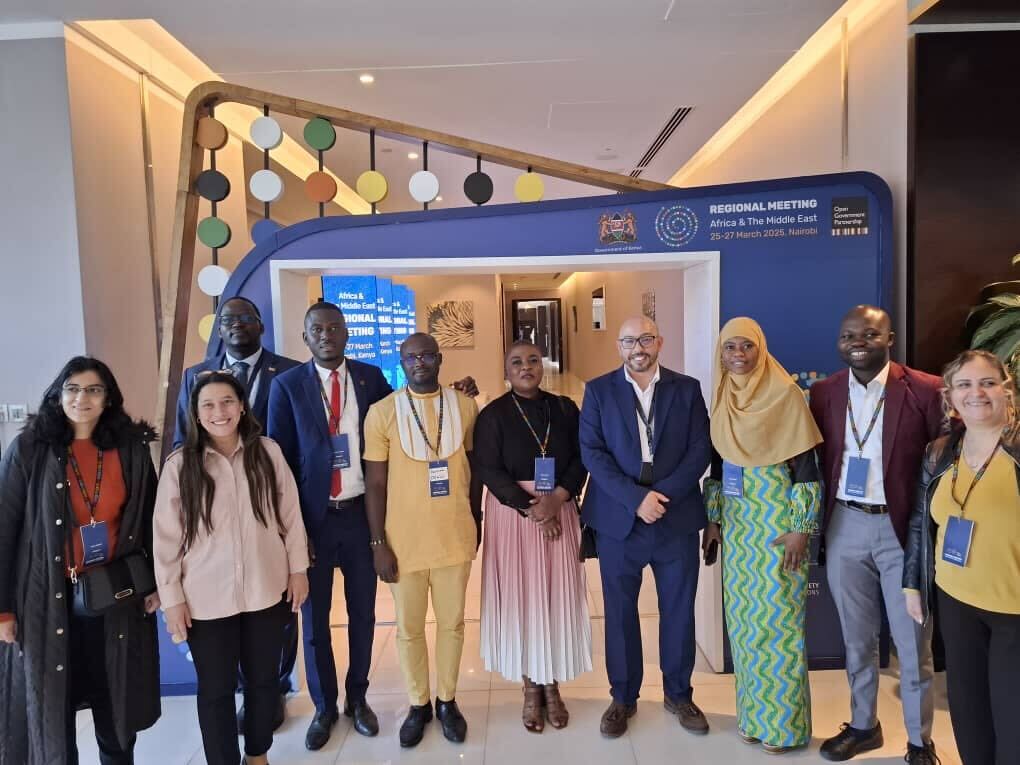
Lanzamiento oficial de la Red OpenDev en la Reunión Regional de OGP África y Medio Oriente en Nairobi, Kenia, marzo de 2025.
Aprendiendo juntos, organizándonos rápido
En menos de un año, la red ha organizado más de una docena de seminarios web, cada uno con alrededor de 60 participantes, desde periodistas y expertos legales hasta funcionarios públicos y líderes estudiantiles. El enfoque es práctico: cómo asegurar el presupuesto. transparenciaDe acuerdo con los Artículos de Gobernanza de OGP, la transparencia ocurre cuando "la información en poder del gobierno (incluidas las actividades y decisiones) es abierta, completa, oportuna y está disponible gratuitamente para el público... Más, qué participacion ciudadanaDe acuerdo con los Artículos de Gobernanza de OGP, la participación ciudadana ocurre cuando "los gobiernos buscan movilizar a los ciudadanos para que participen en el debate público, brinden aportes y hagan contribuciones que conduzcan a m ... Más medios en la práctica y cómo fomentar la rendición de cuentas a nivel local.
“No organizamos eventos para impresionar”, dice Malick Lingani, de Burkina Faso. Beog Neere“Lo hacemos para que sea útil”.
Un hilo conductor en toda la red es la tecnología. Lo que une estos esfuerzos es la creencia compartida en el poder de la tecnología para democratizar la información y amplificar las voces cívicas. En Camerún, ADISI corre OpenGovLoc, capacitando a jóvenes en el monitoreo digital de los presupuestos municipales. En Rabat, Samia El Baouchi trabaja con grupos de la sociedad civil para adoptar herramientas como el presupuesto participativo y datos abiertosAl abrir los datos y hacerlos compartibles y reutilizables, los gobiernos pueden permitir un debate informado, una mejor toma de decisiones y el desarrollo de nuevos servicios innovadores. Especificaciones técnicas: Póliza... cuadros de mando.
Todo lo que hizo falta fue un único seminario web organizado por Impacto para el desarrollo que catalizó el movimiento. Diez personas se unieron a la convocatoria. Hoy, son cientos. Con el apoyo de OGP, se ha consolidado un ritmo mensual que conecta a participantes de distintas geografías y causas. Los problemas en torno a los cuales se unen —el clima justiciaPara abordar las barreras que impiden que los ciudadanos satisfagan sus necesidades de justicia, los gobiernos participantes de OGP están trabajando para ampliar la transparencia, la rendición de cuentas y la inclusión en todos los sistemas de justicia..., géneroLos gobiernos participantes de OGP están trayendo perspectivas de género a áreas de políticas populares, asegurando la diversidad en los procesos participativos y apuntando específicamente a las brechas de género en las políticas para abordar los gobiernos ... Más equidad, inclusiónLos gobiernos participantes de OGP están trabajando para crear gobiernos que realmente sirvan a todas las personas. Los compromisos en este ámbito pueden abordar personas con discapacidad, mujeres y niñas, lesbianas, gays, bisexuales, tr... Más, y la transparencia—surgió de una encuesta realizada en toda la red.
“Ahora tenemos una plan de acciónLos planes de acción son el núcleo de la participación de un gobierno en OGP. Son el producto de un proceso de co-creación en el que el gobierno y la sociedad civil desarrollan conjuntamente compromisos de gobierno abierto...“, una hoja de ruta que elaboramos nosotros mismos”, dice El Baouchi. “Pero aún necesitamos crecer. Necesitamos recursos, capacitación y estrategias de comunicación que se ajusten a las necesidades ambiciónDe acuerdo con los Artículos de Gobernanza de OGP, los compromisos de OGP deben "extender la práctica del gobierno más allá de su línea de base actual con respecto a áreas clave de gobierno abierto". La ambición captura el po...."
Mantener el rumbo en un terreno irregular
Las ambiciones de la red son claras. El camino a seguir no lo es.
El acceso a la información sigue siendo desigual. Persisten los cortes de internet y la falta de financiación. En muchos países, la voluntad política sigue siendo difícil de conseguir. La fatiga del activismo es real.
Pero la red perdura porque aborda algo esencial: la necesidad de construir un espacio público que incluya a los excluidos y valore el conocimiento desde abajo.
“La sociedad civil no puede simplemente oponerse”, dice Ndiaye. “Tiene que proponer, construir. Y lo estamos haciendo paso a paso”.
¿Qué juegos Open Dev Africa Lo que la distingue es su negativa a esperar un cambio desde arriba. En cambio, está configurando una infraestructura de apertura desde abajo, impulsada por la memoria colectiva, la solidaridad regional y un sentido de urgencia silenciosa.
Contando las historias que importan
A medida que Open Dev Africa se vuelve más organizado en su enfoque, la siguiente parada en la agenda es Una serie de retratos. El propósito no es simplemente una herramienta de comunicación, sino dar testimonio de las historias y luchas detrás del movimiento. Documentar las vidas de los involucrados. Humanizar debates políticos abstractos. Mostrar cómo se ve el gobierno abierto cuando se arraiga en la experiencia cotidiana.
“Cada viaje es único”, dice El Mekki. “Pero juntos cuentan una historia: la de un continente que se niega a ser marginado”.
En abril de 2025 se celebró el lanzamiento oficial en Nairobi. Pero fue más que un hito simbólico. Marcó un punto de inflexión, del surgimiento a la consolidación, del diálogo a la coordinación.
Con el apoyo continuo de OGP y el interés de socios potenciales, Open Dev Africa Se posiciona como algo más que una simple red. Es una propuesta. Una visión. Una reivindicación de que el África francófona no solo tiene algo que decir sobre gobernanza, sino también algo que enseñar.
Este blog cuenta con el apoyo de la Agencia Francesa de Desarrollo (AFD). Las ideas y opiniones expresadas son las de los autores y no reflejan necesariamente la postura de la Agencia Francesa de Desarrollo.
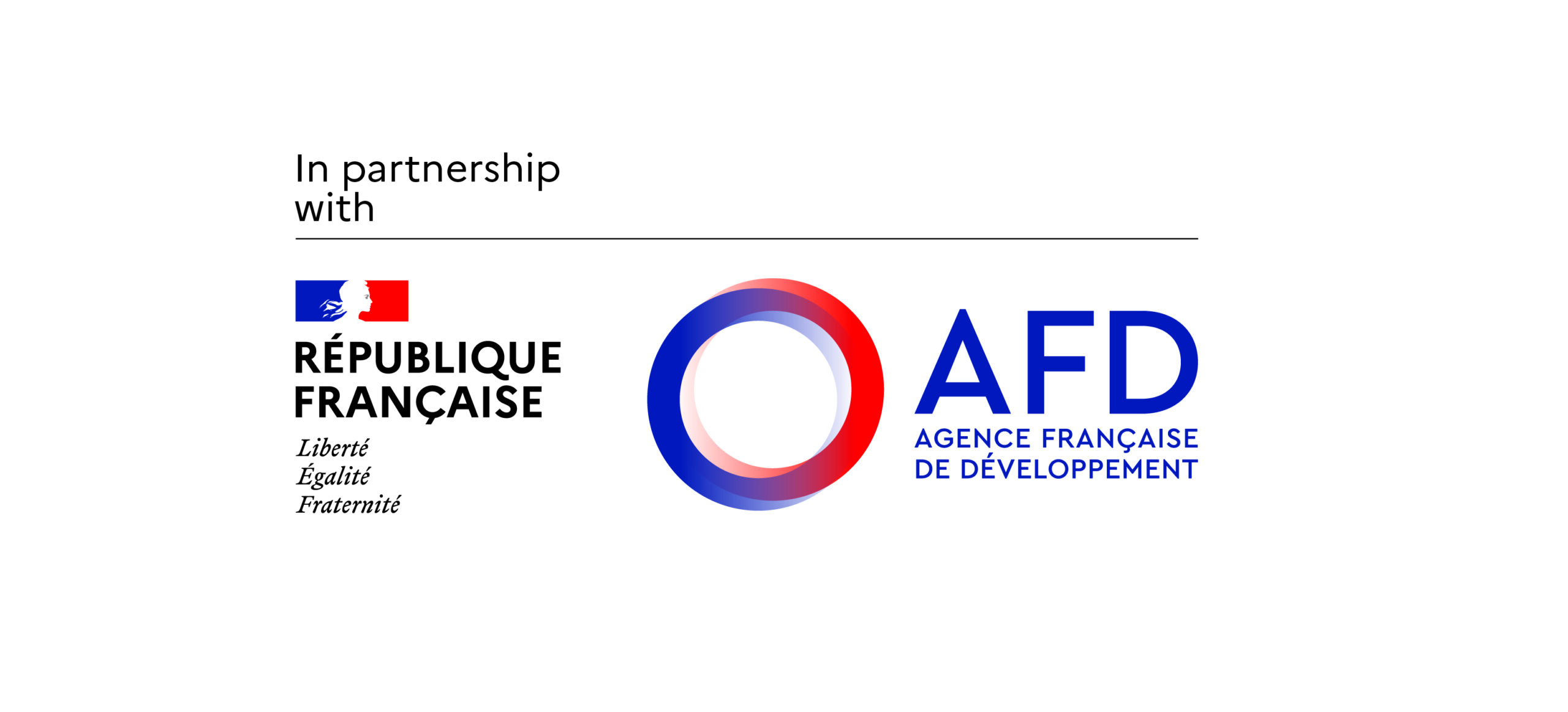
À première vue, ce ne sont que des groupes WhatsApp, des échanges Zoom et des Google Docs qui circulent de Dakar à Rabat, de Douala à Ouagadougou. En réalité, c’est tout un continent qui s’éveille à l’idée d’un gouvernement plus transparent, plus participatif, plus inclusif.
L’initiative s’appelle Open Dev Africa. Elle rassemble des centaines d’organisations, de collectifs citoyens, d’associations de femmes ou de jeunes, autour d’une ambition commune : faire entendre la voix francophone dans l’espace du Partenariat pour un gouvernement ouvert (PGO ou OGP en anglais) qui présente une forte majorité anglophone.
« Lors des premières rencontres continentales, le déséquilibre était flagrant. D’un côté, les pays anglophones avec leurs plans d’action bien rôdés. De l’autre, nos réalités, nos retards, mais aussi notre volonté de faire », raconte Abdoulaye Ndiaye, chargé de programme à l’ONG Article 19 au Sénégal. De ce constat est né un réseau informel, qui fédère aujourd’hui 700 membres répartis sur 21 pays.
Une dynamique horizontale
La coordination n’obéit à aucune hiérarchie fixe. Des groupes thématiques se forment, s’auto-organisent, proposent des idées de webinaires, rédigent des notes conceptuelles. L’ensemble repose sur le volontariat. « Ce qui compte, ce n’est pas le statut, mais la contribution de chacun », explique Mouna El Mekki, militante tunisienne et cofondatrice du réseau.
À l’instar des webinaires. Une dizaine ont déjà été organisés en moins d’un an, attirant à chaque fois une soixantaine de participants : jeunes leaders, militants, journalistes, magistrats, parfois des fonctionnaires. On y parle de participation citoyenne, de transparence budgétaire, de gouvernance locale. Un format sobre, mais efficace.
« On essaie d’être dans l’utile, pas dans la vitrine », précise Malick Lingani, président de l’ONG Beog Neere au Burkina Faso.
Le numérique comme levier
À Douala, le projet OpenGovLoc, porté par ADISI-Cameroun, forme des jeunes à l’usage du digital pour suivre les politiques publiques locales. À Rabat, Samia El Baouchi, coordinatrice du Réseau de la société civile africaine pour un développement ouvert, accompagne les membres du réseau dans l’adoption de mécanismes d’ouverture, parmi lesquels : consultations citoyennes, budget participatif, transparence des données.
C’est d’ailleurs à partir d’une initiative portée par Impact pour le Développement que le réseau a commencé à émerger : « Les thématiques sont toutes dans les principes d’ouverture de l’OGP. Notre premier webinaire avait réuni 10 personnes. Aujourd’hui, nous sommes 700 », témoigne Samia El Baouchi. Soutenue par l’OGP, l’initiative a permis de structurer un réseau autour de webinaires mensuels sur les axes prioritaires du gouvernement ouvert. Ses points forts : le partage et l’apprentissage, l’engagement communautaire, la synergie et le réseautage.
Mais des défis subsistent. « Il faut renforcer la communication, garantir la pérennité financière, et surtout miser sur la formation et le capacity building », recommande-t-elle. La communauté a identifié quatre sujets prioritaires : changement climatique, participation, genre et inclusion, et transparence budgétaire. Ces quatre thématiques majeures sont ressorties d’une enquête menée auprès des membres.
Un plan d’action est désormais finalisé, et le lancement officiel d’Open Dev, qui s’est tenu à Nairobi en avril 2025, a été présenté comme une étape structurante de l’initiative.
Une ambition discrète mais tenace
Le réseau avance à son rythme. Peu structuré, encore largement bénévole, il se cherche un modèle. « Il nous faut des soutiens, des partenaires, de la reconnaissance institutionnelle », glisse Abdoulaye. Mais il avance, porté par une conviction partagée : celle que la société civile ne doit pas seulement revendiquer, mais aussi proposer, construire, relier.
Les défis restent nombreux : absence de volonté politique dans certains pays, manque de financements, inégalités d’accès à l’information, coupures internet, fatigue militante. Pourtant, le réseau tient. Parce qu’il répond à un besoin. Parce qu’il comble un vide. Parce qu’il permet de sortir de l’isolement.
Des histoires à raconter
Pour valoriser les parcours de ses membres, le réseau prépare une série de portraits. L’objectif n’est pas seulement de communiquer, mais surtout de témoigner.« Ce que nous voulons maintenant, c’est raconter les visages du gouvernement ouvert africain », annonce Mouna. Le réseau prépare une série de portraits. Pas pour faire uniquement de la communication, mais surtout pour témoigner. « Chaque histoire est singulière, chaque parcours est différent », dit-elle.
Les lignes de l’avenir commencent à se dessiner. «Un plan d’action existe déjà, » affirme Samia El Baouchi. C’est un moment de bascule : celui où l’élan collectif cherche à se traduire en acte, où la voix francophone tente de se frayer une place durable dans les enceintes feutrées, et souvent verrouillées, du gouvernement ouvert.
Car c’est là, sans doute, que réside la force de cette dynamique : dans sa capacité à faire exister une autre narration de l’Afrique. Une Afrique qui, sans bruit, sans façade, travaille à rendre ses institutions plus justes.
Ce réseau a pu consolider son action grâce à l’appui de l’OGP qui l’a soutenu depuis ses premiers pas. Une étape clé pour structurer une mobilisation collective et faire entendre davantage la voix francophone dans les espaces internationaux du gouvernement ouvert.
Ce blog est soutenu par l’Agence Française de Développement. Les idées et opinions exprimées dans ce blog sont celles des auteurs et ne reflètent pas nécessairement les vues de l’Agence Française de Développement.

Comentarios (2)
Mohamed Elkhouaja Responder
¡Eso realmente suena como una gran iniciativa!
Somos una asociación ambiciosa con sede en la provincia de Ouezzane, Marruecos. Actualmente, trabajamos en un proyecto centrado en el empoderamiento de niños, jóvenes y niñas en zonas rurales. También trabajamos para integrar la programación y la tecnología en nuestros programas para contribuir a la reducción de la brecha digital.
Estaremos encantados de unirnos a la Open Government Partnership Me encantaría tener la oportunidad de aprender de otras asociaciones inspiradoras. No dude en orientarnos sobre cómo podemos unirnos a la red.
¡Gracias por tu apoyo!
Deje un comentario
Más información
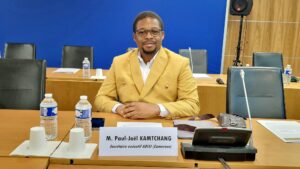 de la Educación
de la Educación Rostros del gobierno abierto: Paul-Joël Kamtchang
Paul-Joël Kamtchang es periodista de datos de Camerún y Secretario Ejecutivo de ADISI-Camerún. En el Día Africano contra la Corrupción, ofrece ideas sobre cómo los datos abiertos mejoran la transparencia y la rendición de cuentas...
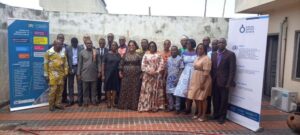
Co-creación en acción: Cómo Benín logra que los presupuestos funcionen para la gente
Descubra cómo la acción ciudadana en Benín está convirtiendo los presupuestos abiertos en cambios reales, desde la solución de las deficiencias en los libros de texto hasta la financiación de la atención sanitaria rural.
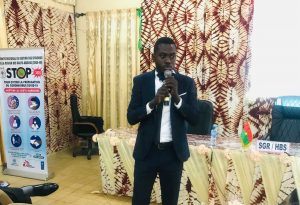 Desafíos y soluciones
Desafíos y soluciones Rostros del gobierno abierto: Malick Lingani
Malick Lingani nos cuenta cómo las organizaciones y los socios internacionales están ayudando a los miembros de OGP de habla francesa a fortalecer sus esfuerzos de gobierno abierto y a otros países de la región a acercarse a unirse a OGP.

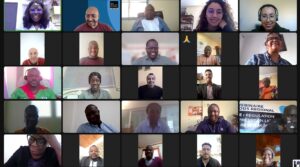
patrice Responder
Félicitation chers collègues